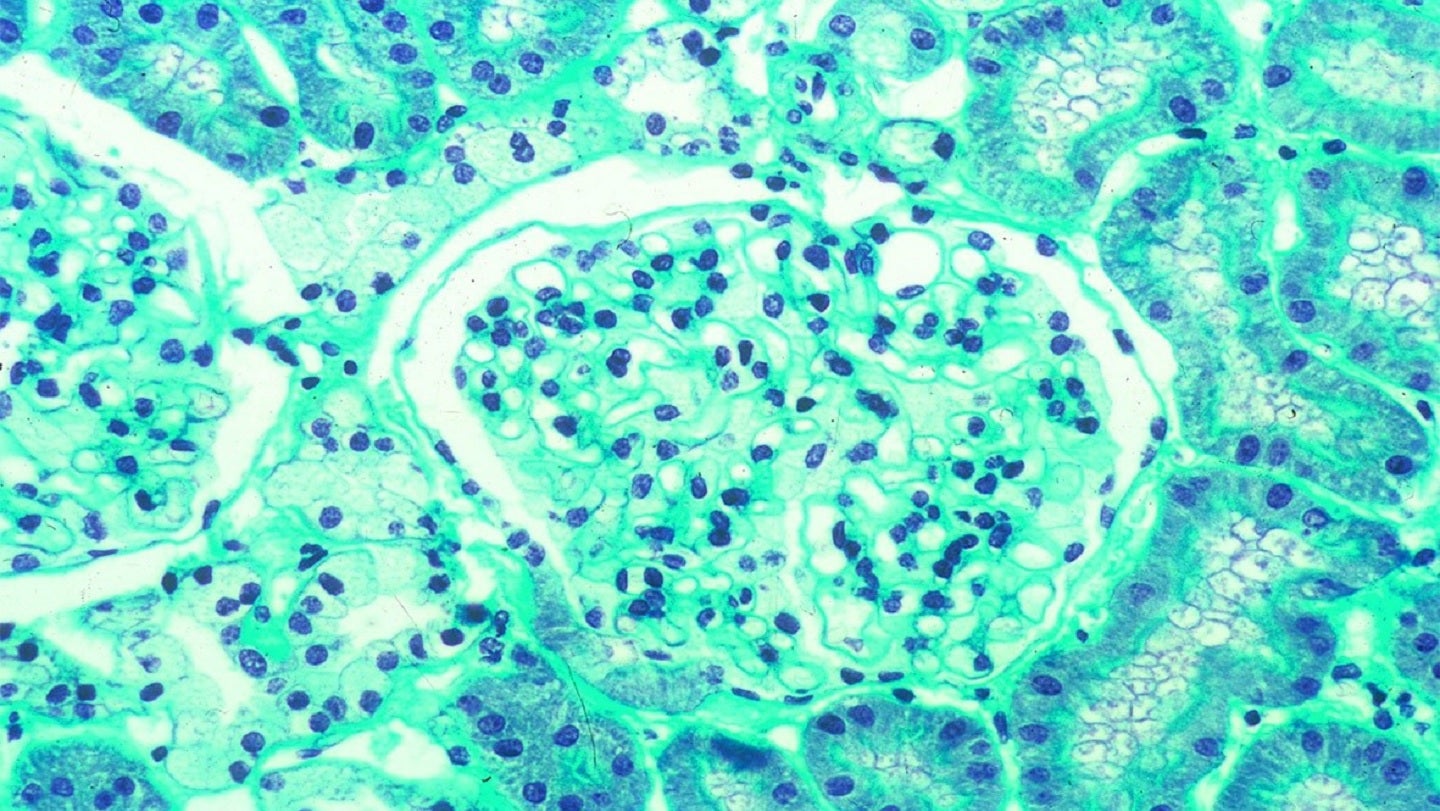
The European Commission (EC) has granted marketing authorisation to Chiesi Global Rare Diseases and Protalix BioTherapeutics’ PRX-102 (pegunigalsidase alfa) in the European Union (EU) to treat Fabry disease in adult patients.
The PEGylated enzyme replacement therapy (ERT), PRX-102 is a plant cell culture-expressed, and chemically modified recombinant version of the α‑Galactosidase‑A enzyme.

Discover B2B Marketing That Performs
Combine business intelligence and editorial excellence to reach engaged professionals across 36 leading media platforms.
It was found to have a favourable circulatory half-life of about 80 hours, with targeted enzyme activity in organs that are affected by Fabry disease, in clinical trials.
Chiesi Global Rare Diseases head Giacomo Chiesi said: “People living with Fabry disease often perceive their disease as burdensome and still experience unmet medical needs.
“Our deepest gratitude to all patients and patient advocates who have stood shoulder-to-shoulder with clinical researchers, scientists, and regulators during the clinical development programme, providing the data needed for this approval.”
The authorisation from EC was based on the data obtained from a comprehensive clinical development programme, which was conducted in over 140 patients, who received treatment for up to 7.5 years.

US Tariffs are shifting - will you react or anticipate?
Don’t let policy changes catch you off guard. Stay proactive with real-time data and expert analysis.
By GlobalDataThe company stated that PRX-102 has been investigated in ERT-experienced and ERT-naïve patients, including in a head-to-head trial.
It showed non-inferior efficacy to agalsidase beta in controlling the kidney disease, as assessed by the estimated glomerular filtration rate (eGFR) decline.
Protalix BioTherapeutics president and CEO Dror Bashan said: “The European Commission’s approval of PRX-102 is a significant milestone for patients with Fabry disease and their families, providing a new therapeutic option.
“Based on solid results from our robust clinical programmes, PRX-102 has the potential to be widely used for many years to come.”




